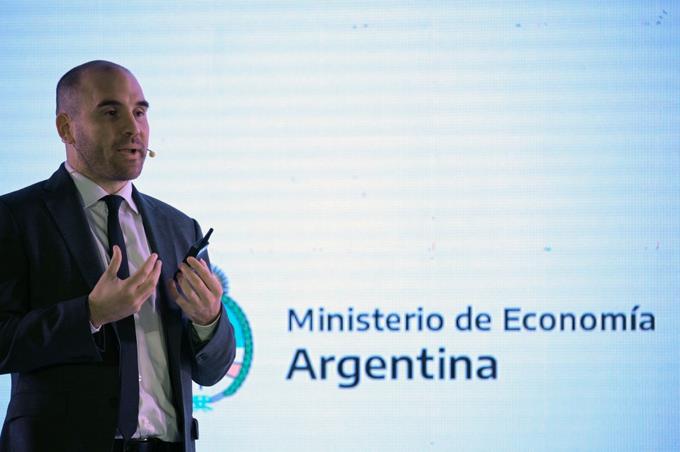The Minister of Economy of Argentina, Martin Guzmanannounced this Saturday his resignation from the position in a letter to President Alberto Fernández that he disclosed on his Twitter account.
"I am writing to you on the occasion of presenting my resignation to the position of Minister of Economy of the Nation, with which I will be honored since December 10, 2019"says the letter. "The hour needs that whoever you decide to take the reins of the Ministry that until today I had the honor of leading".
Resisted by a large part of the governing Justicialista (Peronist) Party, he maintained that for his replacement "it will be paramount that you work on a political agreement within the ruling coalition".
In an economy plagued by inflation of more than 60% in 12 months and the depreciation of its currency, the peso, Guzmán said that from now on "it will be essential to continue strengthening macroeconomic consistency, including fiscal, monetary, financing, exchange and energy policies".
Third Latin American economy after Brazil and Mexico, Argentina agreed with the International Monetary Fund (IMF) a loan of extended facilities, known as SAF, to settle the 44,000 million dollars disbursed within the framework of a credit agreed four years ago for 57,000 million , the largest in the Fund’s history.
Guzman led negotiations with the IMF to achieve that agreement, resisted by a part of the ruling party headed by Vice President Cristina Fernández, and managed to prevent the country from falling into default.
"With the deep conviction and confidence in my vision of the path that Argentina should follow, I will continue working and acting for a fairer, freer and more sovereign Homeland."added the outgoing minister in his letter of resignation.
Alberto Fernández has not yet ruled on the departure of one of his main collaborators from the cabinet.
With a brilliant academic career, Martín Guzmán led as Minister of Economy the Argentine debt renegotiation with foreign creditors and with the IMF, which prevented the country from falling into default, but was consumed by the maelstrom of inflation.
An outstanding disciple of the Nobel Prize in Economics Joseph Stiglitz, he lacked experience in government management and neither had political militancy when he took office in December 2019 in the cabinet of President Alberto Fernández, a center-left Peronist.
Two and a half years later, after having restructured 66,000 million dollars with international bondholders and another 44,500 million with the International Monetary Fund, Guzmán resigned this Saturday from his position, harassed by internal criticism and in the midst of an inflationary crisis that has led to the price index to rise 60% annualized, one of the highest figures in the world.
In his letter of resignation, Guzmán highlighted the unforeseen difficulties that the government faced almost from the beginning – the covid-19 pandemic and the effects of the war in Ukraine – but considered that together with the president they gave "steps for the economy (…) to recover and grow".
The 39-year-old oldest of five brothers, Guzmán studied economics at the University of La Plata and later at Brown University in the United States. Stiglitz later joined his team of researchers at Columbia University in New York.
His specialty is sovereign debt and stood out as a skillful interlocutor with the International Monetary Fund. It is still uncertain how the markets will react to his departure from the government.
"For the IMF, Guzmán was the lesser evil. But he sinned of arrogance over time. The Argentine situation is not only explained by political reasons, it is clear that there were also economic shortcomings"analyst Carlos Fara told AFP.
Of slow speech and friendly character, Guzmán gradually fell out of favor within the government. Since the end of 2021, she faced the open rejection of Vice President Cristina Kirchner, opposed to the fiscal adjustment required by the new agreement with the IMF.
The son of a math teacher and a tennis instructor, Guzmán decided to study economics as a result of the 2001 crisis, when the country fell into default.
"The reality that was lived in Argentina in my particular case led me to dedicate myself to Economics"to understand "why does something like this happen and how to solve it"he told AFP a few months ago.
